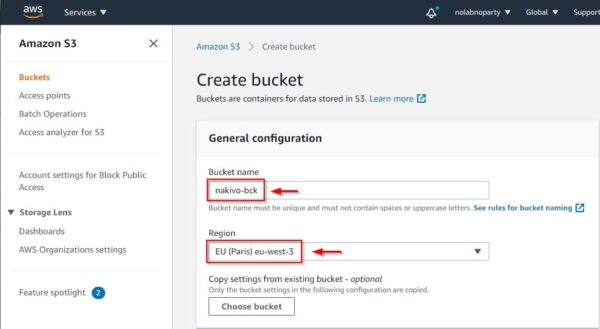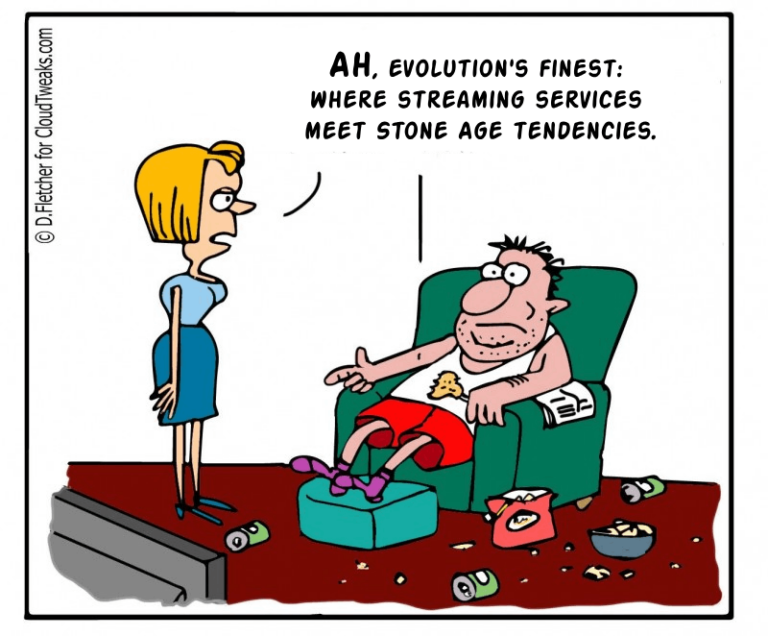
Web Real-Time Communication (WebRTC) has emerged as a powerful technology that enables direct browser-to-browser communication without the need for plugins or additional software. However, implementing WebRTC effectively can be a complex process that requires expertise and careful planning.
One of the primary challenges in WebRTC implementation is ensuring compatibility across different browsers and devices. Despite its versatility, WebRTC relies on various APIs and protocols that may behave differently depending on the environment. Proper configuration of signaling servers, STUN/TURN servers, and media encoding settings is crucial for seamless functionality, which often demands a deep understanding of the technology.
This is where hiring webrtc consulting specialists comes into play. Expert consultants can guide you through the intricacies of WebRTC implementation, helping you make informed decisions and avoid common pitfalls. In this article, we’ll explore how WebRTC consulting can enhance your project and help you navigate the ever-evolving WebRTC landscape.
What is WebRTC?
WebRTC is an open-source project that provides web browsers and mobile applications with real-time communication capabilities through simple APIs. It allows for peer-to-peer audio, video, and data transfer directly between browsers, without requiring any plugins or additional software. Key features of WebRTC include low-latency, high-quality audio and video communication, peer-to-peer data transfer, adaptive bitrate streaming, built-in security features like encryption and authentication, and cross-platform compatibility.
One of the often-overlooked aspects of WebRTC is its reliance on signaling mechanisms to establish and manage connections. While WebRTC itself doesn’t define how signaling should be implemented, developers must choose a signaling method that suits their specific use case. This process involves exchanging metadata like session descriptions and ICE candidates, which can be done using protocols such as WebSocket or HTTP-based communication.
While WebRTC offers numerous benefits, implementing it effectively can be challenging. Some common hurdles include complex technical requirements, compatibility issues across different browsers and devices, network and firewall traversal, scalability concerns, security and privacy considerations, and integration with existing systems. These challenges underscore the importance of expert guidance when embarking on a WebRTC project.
- Top 18 Best Web Hosting Services In 2024: Despite there are multiple web hosting providers available in the market, choosing the best one is really a hard nut to crack!! Because almost all service providers are offering their services with the same features and quality.
- How to start your own Crypto currency website: For a cryptocurrency news website, choosing the right Content Management System (CMS) is crucial for managing content effectively, ensuring security, and providing a great user experience. Here are some of the best CMS options tailored for such a site, each with its unique strengths:
- The Evolution of Coffee Brewing Methods: A Historical Perspective: Coffee has been brewed and enjoyed for centuries, with various methods evolving over time to create the perfect cup of joe. From early methods like the Ibrik method and coffee pots for coffee houses to modern technologies like the AeroPress and Hario V60, the world of coffee brewing has come a long way.
- Stop WordPress from Creating Extra Cropped Image Sizes: Whenever you upload an image to your WordPress site through the media library, it automatically creates and stores multiple additional versions of that image. If your site doesn’t utilize these extra image sizes, they will consume valuable storage space and increase the size of your server backups.
- Explain WordPress Portfolio and how to created them: WordPress portfolios are digital showcases for individuals or businesses to display their work, projects, or professional accomplishments. This feature is particularly useful for creatives, freelancers, and agencies looking to exhibit their skills or services in a visually appealing and organized manner. Portfolios in WordPress can be created using various methods, including themes that come with built-in portfolio functionalities, plugins that add portfolio features, or custom coding for a more personalized approach.
- 15 Essential WordPress Plugins For Every Site: Plugins are essential for every type of website, as they provide additional features and customization options that are not available in the core WordPress platform. A study by CodeinWP found that the average WordPress site has 20 active plugins, indicating the importance of plugins in website development.
- SAILING and YACHTING: Awesome Sailing Vlogs for the Enthusiast
- Comparing Google and Microsoft’s Success in Capitalizing on Generative AI: The buzz of interest in AI services helped drive revenue for Microsoft’s biggest unit, cloud services—up by 7 percentage points compared to a year ago—and Microsoft’s overall sales rose 17 percent to nearly $62 billion. It also gained cloud market share, Nadella added. The number of $100 million cloud deals that Microsoft landed increased 80 percent during the quarter compared to the same period a year ago, and $10 million deals doubled.
- The Best WordPress Hosting Solution in Australia: Each of our WordPress hosting solutions are fine-tuned, blazing fast and are ready for you! Starting a WordPress website has never been easier with our free 1-click WordPress installation, enterprise-grade security and an assortment of tutorials and helpful guides to get you started, all backed by our 99.9% uptime guarantee.
- Elementor vs Beaver Builder: A Comparison of Design Flexibility and Performance in WordPress: Elementor and Beaver Builder are two of the most widely recognized options, each providing distinct features that cater to varying user requirements. This article conducts a comprehensive comparison of these tools, examining their design flexibility, performance metrics, and overall user experience.
- The Best Contact Form Plugins for WordPress to Easily Manage User Inquiries: In an effort to improve user interactions on WordPress websites hosting, the examination of contact form plugins becomes essential. This article aims to present an overview of the top 5 contact form plugins available for WordPress, highlighting their features and pricing structures to facilitate an well-considered choices process.
- What are the 20 best Joomla plugins: Joomla plugins are small, task-specific extensions that enhance or modify the core functionality of a Joomla website. They operate as event-driven scripts, listening for specific “events” triggered by Joomla or its components and executing corresponding actions. Plugins are a crucial part of Joomla’s extensibility, allowing developers to add features or customise behaviour without altering the core Joomla code.
- How to design a strong off-page SEO strategy: Lessons learnt from earning over 50,000 contextual links for thousands of websites in the toughest niches. In 2023, virtually every business that has a website is prioritizing their investment in SEO. The reason being, amidst the chaos of the current year, customers are resorting to online channels for safe purchasing, and optimizing their online presence is a surefire way to gain an edge over rivals. While some firms have set up internal teams, and others have hired external agencies to boost their search engine rankings, a documented off-page SEO strategy is still a rarity among most businesses.
- What are WordPress Plugins? WordPress plugins are modular pieces of software that can be added to a WordPress site to extend or enhance its functionality without modifying the core WordPress code. They allow website owners to add features, improve performance, and customise the behaviour of their websites easily, catering to a wide range of needs, from SEO and security to e-commerce and design enhancements.
How hiring dedicated WebRTC consulting specialists helps businesses?
WebRTC consulting services provide specialized expertise to help organizations navigate the complexities of WebRTC implementation. Consultants can assist with strategic planning, technical expertise, security and privacy measures, scalability solutions, integration support, performance optimization, customization and feature development, and ongoing troubleshooting and support.
Access to Insights on Emerging Trends and the Best Practices in the industry
The WebRTC landscape evolves rapidly, with new updates, standards, and use cases emerging frequently. Consultants stay up-to-date with these changes, ensuring that your implementation leverages the latest advancements and adheres to current standards, which can provide a competitive edge and future-proof your solutions.
One of the key advantages of working with WebRTC consultants is their ability to provide a comprehensive strategy for your project. This involves assessing your current infrastructure, identifying your specific needs, and aligning the WebRTC implementation with your business goals. Consultants can help you define clear objectives, prioritize features, and create a roadmap for successful implementation.
Technical expertise and security considerations
Experienced consultants have in-depth knowledge of WebRTC protocols, APIs, and best practices. They can guide you in choosing the right technologies and frameworks for your project, ensuring compatibility across different platforms and browsers. This expertise is particularly valuable when dealing with complex issues such as NAT traversal, signaling protocols, and media handling.
Another area where technical expertise shines is performance optimization. WebRTC consultants can analyze your application’s architecture to identify bottlenecks or inefficiencies, such as excessive latency, poor video quality, or connection instability. They can recommend techniques like adaptive bitrate streaming, efficient codec selection, and optimized server configurations to ensure smooth and reliable performance, even under challenging network conditions.
Security and privacy are paramount in any communication system, and WebRTC is no exception. Consultants can help you implement robust security measures, including end-to-end encryption, secure authentication mechanisms, and compliance with data protection regulations. They can also assist in identifying and mitigating potential vulnerabilities in your WebRTC implementation.
Scalability and integration
Scalability is a critical consideration for many WebRTC projects, especially those expecting high user volumes or rapid growth. WebRTC consultants can design scalable architectures that can handle increasing loads without compromising performance. This may involve implementing load balancing strategies, optimizing server resources, and leveraging cloud technologies to ensure your system can grow with your user base.
Another important aspect of scalability is planning for global deployment. For applications with an international user base, consultants can help configure geographically distributed servers and implement techniques like edge computing to reduce latency and enhance the user experience. This ensures that your WebRTC solution remains responsive and reliable, regardless of user location.
Integration with existing systems is often a significant challenge in WebRTC projects. Consultants can provide valuable support in seamlessly integrating WebRTC functionality with your current infrastructure, whether it’s a CRM system, a learning management platform, or a customer support application. They can develop custom APIs and ensure smooth data flow between different components of your system.
The WebRTC consulting process
A typical WebRTC consulting engagement follows a structured process to ensure comprehensive coverage of all aspects of your project. This usually begins with an initial assessment of your current infrastructure and requirements. Based on this assessment, consultants work with you to develop a tailored strategy for your WebRTC implementation.
The process continues with designing the technical architecture, providing implementation support, conducting thorough testing and quality assurance, assisting with deployment, and offering ongoing support and optimization. This comprehensive approach ensures that your WebRTC project is set up for success from start to finish.
Choosing the right WebRTC consultant
When selecting a WebRTC consultant, consider the following factors:
- Experience and expertise in WebRTC technology
- Understanding of your industry and specific use case
- Track record of successful implementations
- Ability to provide end-to-end support
- Knowledge of the latest WebRTC developments and best practices
Look for consultants who can demonstrate a deep understanding of both the technical aspects of WebRTC and the business implications of its implementation. They should be able to communicate complex concepts clearly and work collaboratively with your team.
By leveraging the knowledge and experience of WebRTC consultants like Cloverdynamics, you can accelerate your project’s development, reduce risks, and create a robust, future-proof communication solution that meets your specific needs. Whether you’re building a telemedicine platform, enhancing your e-learning offerings, or revolutionizing customer support, WebRTC consulting can be the key to unlocking the full potential of real-time communication in your project.
By Gary Bernstein




